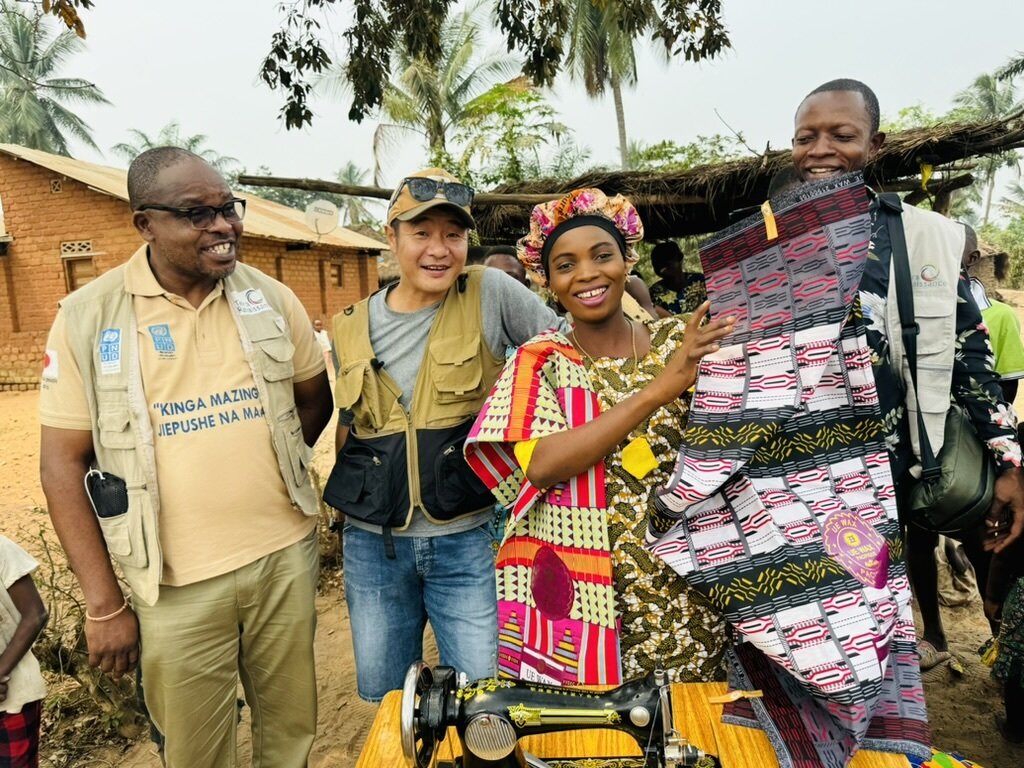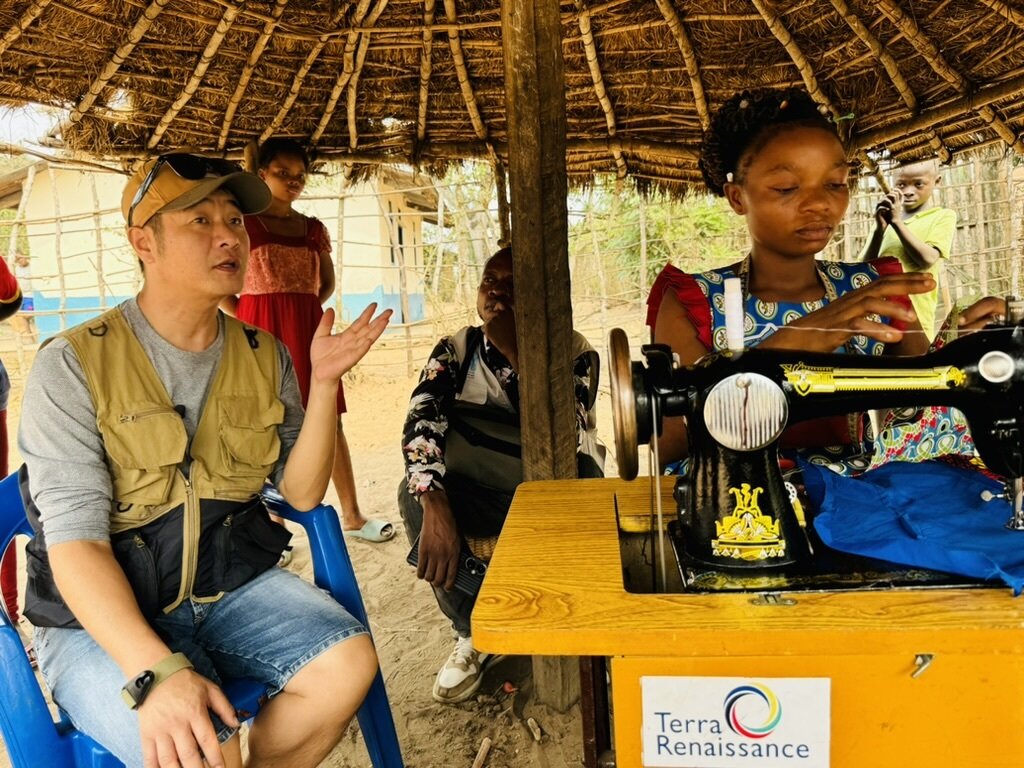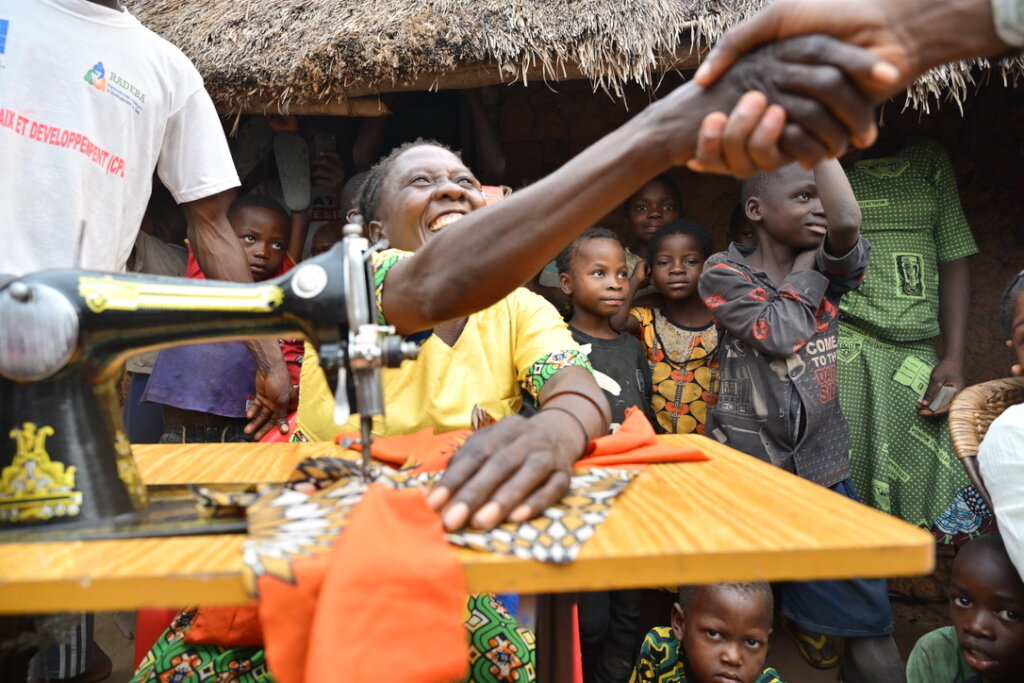By Natsuki Iida | Member of Advocacy Team
To all of you who have always supported us, here is the latest report on “Empowering conflict-affected people in DR Congo”.
Background: Since 1998, the Democratic Republic of Congo has been ravaged by conflict, leaving many people struggling with poverty and its devastating consequences. Terra Renaissance has been implementing a wide range of support activities in South Kivu and Central Kasai Provinces of the Democratic Republic of Congo (hereinafter referred to as "Congo") to improve the resilience of the most vulnerable people, such as women and the poor, who have been affected by the conflict. These activities include the provision of living materials, vocational training, and support for starting small businesses.
This report shares the inspiring stories of women who have continued their tailoring businesses after graduating from our tailoring training program in Central Kasai Province, Congo.
Initially, we provided training to 30 women. Many of them had lost family members or were displaced from their homes due to the 2020 conflict. After completing the training and starting their businesses in 2022, all of them continue to operate their tailoring businesses today. Most of them have sewing machines set up near their homes in the village and are supporting their livelihoods by combining tailoring with agriculture.
Although they face lower incomes compared to beneficiaries in other regions, these women demonstrate remarkable resilience. They utilize the strengths of their rural communities and their strong social connections to navigate a range of crises and difficulties.
Many women faced numerous challenges, including equipment breakdowns, intensifying conflicts, soaring transportation costs, and declining purchasing power among villagers. Despite these hardships, it was impressive to see how many of them overcame financial difficulties by establishing “credit” with suppliers and repair shops, allowing them to repair their sewing machines or borrow supplies. In essence, they relied on “trust” to cooperate and maintain their livelihoods during crises.
Moreover, when villagers faced similar hardships and could not afford to pay, these women often provided tailoring services on credit or taught sewing to their neighbors, embodying the community spirit of mutual support. The strong social bonds within these villages, compared to urban areas, played a crucial role in enhancing their resilience.
It's particularly noteworthy that these relationships extended beyond blood and neighborhood ties, as new connections and trust were forged through their work. This clearly indicates the importance of engaging in productive activities, such as the sewing business, as a means of achieving self-reliance and reducing dependency on humanitarian aid.
Another distinctive feature was their flexibility. Working from home or a small rented space in the village with just a sewing machine, they could easily relocate to other villages when the security situation worsened, maintaining their livelihood through tailoring.
Through studying the experiences of these women, we have gained valuable insights into the types of support that can enhance resilience. We will continue to nurture their growth, providing support and learning alongside them.
We appreciate your continued partnership in this critical work.
Links:
Project reports on GlobalGiving are posted directly to globalgiving.org by Project Leaders as they are completed, generally every 3-4 months. To protect the integrity of these documents, GlobalGiving does not alter them; therefore you may find some language or formatting issues.
If you donate to this project or have donated to this project, you can receive an email when this project posts a report. You can also subscribe for reports without donating.
Support this important cause by creating a personalized fundraising page.
Start a Fundraiser

